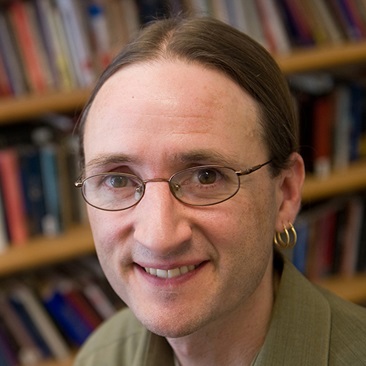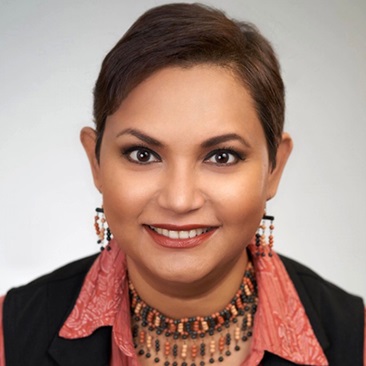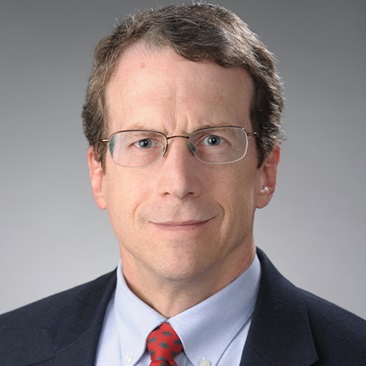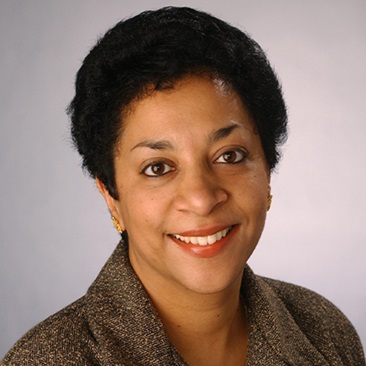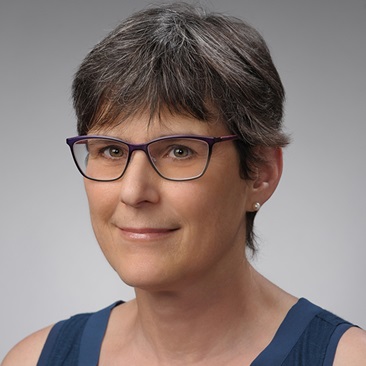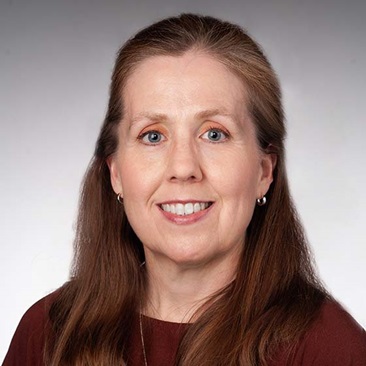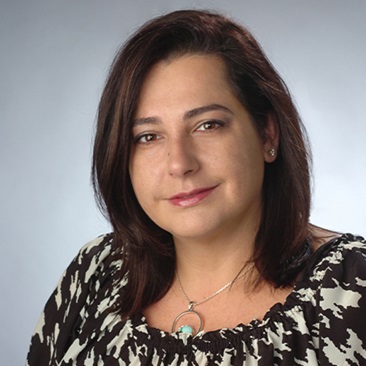Everything We Do Touches On This
December 22, 2015
Gearing up for its centennial in 2024, the Maxwell School is building on its legacy as a school of citizenship — with a new wave of initiatives in teaching, research, and public service centered on citizenship, known collectively as the Tenth Decade Project.
The seed for the tenth decade project was planted in 2014, when Maxwell marked its 90th anniversary with a 1920s-themed party on campus and a gala at the Center for Strategic and International Studies in Washington, D.C.
“When we began to talk about the 90th anniversary, there was a recognition that even though it was important to celebrate the achievements of the past, the most important thing was to look forward as well,” says James Steinberg, dean of Maxwell. “The idea for the Tenth Decade Project came out of that impulse.” Focusing the project on citizenship, he says, unifies all the diverse disciplines and components of Maxwell. “Everything we do touches on this,” he says. “It’s a way of bringing the School together around a shared set of values and interests.”

Steinberg announced the Tenth Decade Project last fall, and the response was immediate and enthusiastic. Members of the School’s Advisory Board and other key supporters have already pledged $900,000 for the Tenth Decade Fund. With this initial support in place and the overarching focus on citizenship in mind, a steering committee began to flesh out what the Tenth Decade Project might be, and how it could reflect Maxwell’s special character.
“The beauty and the strength of Maxwell is the diversity that is even more than the sum of its very significant parts,” says Scott Barrett, who serves on the Tenth Decade committee as Maxwell’s new associate dean of strategic communications and external affairs. “Because we have anthropologists and sociologists and geographers and policy folks all working together, it creates this really interesting mix, with citizenship and public service always at the center.”
In early 2015, the committee put out a call for proposals for long-term projects related to citizenship that are interdisciplinary, engage students as well as faculty, and have the potential to draw interest and support from outside the University.
In the summer, five projects were selected to kick off the Tenth Decade. Their plans are strikingly ambitious: to establish an annual Maxwell survey on citizenship in America; to study the impact of climate change on citizenship; to create a citizenship research and teaching program; to foster research and public events on work, labor, and citizenship in the 21st century; and to build a data repository on free-speech court decisions around the world. (These projects are described further in the following pages.)
The Tenth Decade Fund will support the initial phases of these five far-reaching projects, and the Maxwell School will seek additional funding and external partners for these and for additional projects. Each year, the Tenth Decade committee will put out the call for proposals from interdisciplinary faculty teams. “By the time we’ve reached our 100th birthday,” says Tina Nabatchi, the associate professor of public administration and international affairs who chairs the committee, “we will have amassed this great pool of research, teaching, and service activities that are very diverse but all connected by the idea of citizenship.”
At press time, the dean’s office had just announced another important component of the Tenth Decade: the creation of the Tenth Decade Faculty Scholar awards, recognizing faculty contributions to citizenship education. Nabatchi is one of three inaugural Tenth Decade Scholars, along with historian Carol Faulkner and sociologist Andrew London. Each will receive $5,000 per year for three years to support research and curricular development related to citizenship. As the Tenth Decade Fund grows, this program is expected to expand to honor and serve more Maxwell faculty members.
With these new initiatives developing over the next decade, the Maxwell School is set to carry forward citizenship education into its second century.
By Jeffrey Pepper Rodgers
Tenth Decade Project #1
The Maxwell Citizenship Survey
An annual poll will fill gaps in public opinion data on citizenship and inspire further projects
One of the Tenth Decade’s most expansive projects will create an annual Maxwell survey on citizenship in America. The Tenth Decade Project’s call for proposals inspired the idea, bringing together political science faculty members Shana Gadarian and Spencer Piston with sociologist Dawn Dow.
The project aims to address the gaps in existing surveys on public perspectives relating to citizenship. Too often, says Piston, the efforts of scholars are “hampered by the need to address arcane, abstract theories in the literature or debates over research methodology. Moreover, delays in the publication process decrease incentives to address current events.
“Professional pundits and survey firms, meanwhile, are able to produce survey results quickly that make for good headlines, but they rarely engage rigorously with in-depth substantive knowledge that scholars accumulate over decades. We seek to bridge the gap among scholars, practitioners, politicians, and pundits, benefiting them all.”
The survey will have a theme each year, reflecting contemporary issues and events. The inaugural survey will focus on citizen perspectives on inequality.
“Economic inequality is rapidly increasing, especially in the aftermath of the Great Recession,” notes the project proposal. “Racial inequality is deepening as well, America’s first black president notwithstanding. Inequality on the basis of sexual orientation is decreasing in some areas, most notably marriage rights, while holding steady in others. What do ordinary individuals make of inequality, and recent policy changes affecting inequality? In particular, to what extent and under what conditions is the American public willing to extend full citizenship rights to members of populations marginalized by race, class, and sexual orientation? And what do members of marginalized groups make of efforts to combat inequality?”
Each year, Gadarian and Piston will craft the survey, along with a rotating associate principal investigator (this year, Dow), assisted by a graduate student researcher. Other faculty members in Maxwell will be able to propose questions as well as annual themes and join the research team. The goal, says Piston, is “to engage a different set of faculty each year and inform the project from multiple disciplinary perspectives.”
The annual theme will carry through other activities during the year. The project includes a speaker series plus grants for original faculty research on the survey theme. In the first year, Gadarian, Piston, and Dow each plan to investigate different aspects of inequality and citizenship.
The results of each survey and new faculty research will be presented in an end-of-the-year symposium that brings together scholars and policy makers and reaches beyond Syracuse through media coverage and a live stream. Each year’s findings, along with changes in the current social and political climate, will then inform the next round.
“The plan is that once we set up the infrastructure, the citizenship poll we are creating will become a Maxwell fixture,” says Piston. “We believe this project will attract the resources to continue indefinitely.”
Tenth Decade Project #2
Free Speech and Courts Worldwide
A new repository of data will tell us how expression is legally understood and protected
Led by political science professor Tom Keck, Maxwell’s Sawyer Chair of Constitutional Law and Politics, this Tenth Decade initiative entails a massive effort to gather data on free-expression decisions issued by courts around the world. The project is based at Maxwell but also involves collaborative teams of faculty and students at other universities around the U.S. and in Canada, South Korea, Norway, Germany, and Australia.
“Freedom of expression is a central component of both citizenship and democratic governance,” says Keck, “and one that is currently the subject of heated political and legal disputes across the globe, from campus debates about trigger warnings to ‘Je suis Charlie.’ This project will produce valuable research findings about whether and how constitutional courts are protecting this important liberty for a wide variety of political actors.”
This project was already underway when Maxwell’s Tenth Decade call was announced. Keck recognized right away that it fit the themes of the Tenth Decade, and submitted a proposal that would allow him to involve more Maxwell students in the research.
At the end of the summer, the project took a major step forward when it was awarded a $420,000 grant from the National Science Foundation’s Law and Social Sciences Program. Keck and his collaborators began recruiting, hiring, and training research assistants, who are now collecting preliminary data. With additional funding from the Tenth Decade Project, Keck is expanding the team of research assistants and planning several campus events on free-speech issues, open to students and community.
This project, he says, “will provide opportunities for students across all levels of the Maxwell mission — undergraduates, professional MAs, and PhDs — to participate in a high-level mentored research experience.” Since the courts in the study publish decisions in 15 languages, this work will require student assistants with diverse language skills.
The research is beginning this year with the team gathering data on decisions from relevant courts in 25 nations, which are collectively responsible for most of the constitutional free expression jurisprudence worldwide. “By the end of the first year,” Keck says, “we hope to have data in hand on the full universe of constitutional free expression holdings issued by the high courts of the U.S., Canada, and South Africa, and to be well underway with data collection on roughly half a dozen additional national high courts, along with the European Court of Human Rights and the 50 state high courts in the U.S.”
With its global scope, this project will run for the full Tenth Decade. By Maxwell’s 100th birthday, the project will produce two major components: a Web-based portal to a large collection of qualitative and quantitative data, archived in the Maxwell-based Qualitative Data Repository; and a book authored by Keck examining the political beneficiaries of judicial review worldwide.
“As a scholarly research project, the principal goal is the advancement of knowledge for its own sake — in this case, knowledge about who benefits from the judicial enforcement of rights like the freedom of speech,” says Keck. “But I anticipate that the project will have broader impacts as well — most notably, on the multiple cohorts of student assistants at Maxwell and several collaborating institutions. These students will, I hope, learn a great deal about free speech and judicial power, but will also gain valuable research and writing skills that will be transferable to other contexts.”
Tenth Decade Project #3
Employment and Citizenship
What effects do evolving norms of employment and labor have on one’s status in society and public life?
This Tenth Decade initiative examines a profound change in the balance of power between workers and employers in the era of globalization and its impact on citizenship.
In the United States, rights and entitlements have long been tied to employment, but that relationship has eroded over the last 40 years with the global restructuring of labor markets and the decline of labor unions. Similarly, around the world employment often fails to guarantee security, social inclusion, or political voice. According to the faculty proposal for this project, precarious employment, poverty-level wages, and political assaults on worker organization are increasingly common.
In light of these perceived conditions, this project aims, in the words of project coordinator Gretchen Purser, “to highlight questions about how citizenship is shaped by transformations in the labor market, the shifting character of work, and the growth in economic inequality.”
This project is an outgrowth of the Labor Studies Working Group, founded by Purser in 2011 with professors and graduate students from disciplines at Maxwell and across Syracuse University, including sociology (Purser, Cecilia Green), anthropology (John Burdick), geography (Matt Huber, Don Mitchell, Tod Rutherford), food studies (Laura-Anne Minkoff-Zern), religion (Vincent Lloyd), and transmedia (Jessica Posner, who is also vice president of Adjuncts United, the union for part-time instructors).
In the next several years, this project will organize a series of public events, with guest speakers exploring topics such as the consequences on civic engagement of labor’s decline in the U.S., and the international movement to treat labor rights as human rights. The group also plans to introduce, by the end of this academic year, a fund to support students pursuing internships and training programs with labor-related organizations; small research grants for graduate students in the field of labor studies; and a unique visiting artist program in which an artist-in-residence creates a free event, project, or campaign on the theme of work, labor and citizenship.
Ultimately, the project team aims to establish a center for labor studies at Maxwell. “Dedicated labor centers exist at universities — both public and private — across the country,” Purser says. “We see it as an urgent field of scholarship, praxis, and policy making, and one which organically bridges disciplinary boundaries.”
Tenth Decade Project #4
Change In the Weather
The Specter of Climate Change Ties Citizenship to the Fate of the Planet
Around the world, climate change is being studied as a scientific phenomenon, and scholars are examining its social and economic impacts. However, notes the proposal for this Tenth Decade initiative, “No one has asked how a problem that is caused globally but addressed locally might change how individuals perceive and enact citizenship. Our program intends to do that.”
The Climate Change and Citizenship project was designed by a diverse working group from Syracuse University and the SUNY College of Environmental Science and Forestry (ESF), including Farhana Sultana (geography), Catherine Gerard (director of Maxwell’s Program for the Advancement of Research on Conflict and Collaboration), Peter Wilcoxen (public administration and economics), Sarah Pralle (political science), and Paul Hirsch (environmental studies). “Our goal,” says Sultana, “is to understand and explain how climate change action influences, and is influenced by, different understandings and practices of citizenship — individual, local, national, and global.”
In some cases, the project proposal explains, climate change disruptions — sea level rise, flooding, droughts, heat waves, and water shortages — may empower citizens to confront their governments. In other cases, “power structures may exclude certain groups from decision making, thereby reinforcing existing patterns of inclusion and exclusion.”
It’s also possible that climate change will force communities to relocate, straining the correlation between one’s citizenship and a geographically demarcated territory. “Citizens may begin to identify more with their local community or with similarly situated communities around the globe and less with their national government as they seek help adapting to climate change,” the proposal states.
The working group is launching a research program with a timeline of three to four years, laying the groundwork for a longer-term program that will attract external funding and collaborations. It begins with a workshop/conference to ally citizenship scholars with scholars who examine the social and political implications of climate change, to collectively develop a research agenda. The project next will initiate case studies around the world, focusing particularly on communities already seeing the effects of climate change or preparing for future problems. At the conclusion of these studies, the researchers will publish and present their findings at a second conference.
Along with this research, says Sultana, “We will craft an interdisciplinary course on the topic of climate change and citizenship at undergraduate and graduate levels, taught by an interdisciplinary team of faculty.” This new curriculum could extend to the Executive Education program as well, to help train practitioners and policy makers on the front lines of adaptation to climate change.
“All these activities combined,” says Sultana, “will enhance Maxwell’s teaching, research, engagement, and international presence on a critical topic.”
Tenth Decade Project #5
Legacy Writ Large
What more can Maxwell do to lead citizenship scholarship around the world?
This Tenth Decade initiative takes a different approach to building on Maxwell’s citizenship legacy. Rather than researching a defined topic, the project seeks connections within all of Maxwell’s work on citizenship — allying and expanding existing programs, nurturing new collaborations, and spotlighting the School’s authority in this area.
The idea, says sociologist Prema Kurien, who developed the project along with John Burdick (anthropology), Audie Klotz (political science), and Jamie Winders (geography), is to create an umbrella structure that links together Maxwell departments, area studies programs, research institutes such as the Moynihan Institute of Global Affairs and the Campbell Public Affairs Institute, and programs such as the Citizenship and Civic Engagement (CCE) major around the topic of citizenship.
“This will open up spaces for communication, cross-fertilization, and collaboration among faculty members, graduate students, and undergraduates,” says Kurien. “It will also put Maxwell on the map as the place for cutting-edge interdisciplinary, global work on citizenship in the 21st century.”
For undergraduates, the new program will complement CCE by funding new interdisciplinary courses related to citizenship, bringing in speakers, and offering opportunities for students to contribute to faculty research. On the graduate side, the program will introduce a graduate certificate in citizenship and support students with new courses and research funds. Each year, the program will select a post-doctoral fellow who will teach one undergraduate and one graduate course related to the annual theme of citizenship, and help mentor students on their own projects.
For faculty, the project aims to capitalize on shared interests in issues around citizenship. This year, the group will solicit summaries of citizenship research projects from faculty members in Maxwell and elsewhere at the University, and organize them into clusters. The first annual workshop will take place next spring, at which faculty members will learn more about one another’s research, brainstorm about how to take the initiative forward, and plan a conference for the following fall organized around a particular theme — such as citizenship in global context or the relationships between citizenship and migration, gender, race, and religion.
“The goal every year will be to educate the faculty and students on the latest research,” says Kurien, “and to stimulate the generation of paradigm-shifting ideas on topics connected with citizenship.”
Democracy Matters
Tina Nabatchi, who chairs the Tenth Decade faculty committee, has emerged as one of Maxwell’s leading scholars of citizenship.
When Dean Steinberg announced the Tenth Decade Project last year, a natural choice to chair the steering committee was Tina Nabatchi, whose work as a scholar and associate professor of public administration embodies Maxwell’s founding mission of citizenship education.
“Citizenship is central to who we are as a school and who we want to be in the future,” says Nabatchi, sitting in the offices of Maxwell’s Program for the Advancement of Research on Conflict and Collaboration, where she is a research director. “These Tenth Decade projects are meant to elevate that and capitalize on that.”
Citizenship is also central to Nabatchi’s own deep engagement as a scholar and advocate of public participation. “All of the work that I do has to do with democratic governance,” she says. “How do we get people involved in self-governance and in taking responsibility for their communities?”
Nabatchi is addressing this critical question through a dizzying array of collaborative projects. She helped the World Bank develop an online course on public participation that drew 20,000 registrants from around the globe when it launched last March. She works with the Obama administration’s Open Government Initiative on promoting transparency and participation; with the Agency for Healthcare Research and Quality on developing patient-focused strategies to reduce diagnostic error; and with Participedia, an online resource for sharing innovations in democratic participation around the globe. Along the way Nabatchi also managed to coauthor two books published this year: Collaborative Governance Regimes (with Kirk Emerson) and Public Participation for 21st Century Democracy (with Matt Leighninger).
“We can’t just have government doing things top down,” Nabatchi says. “We have to have individuals taking ownership, feeling that they belong to something, having a sense of civic duty and citizenship. It’s got to be a bottom-up effort and a top-down effort to solve so many of the problems we have. So, I look at ways we can involve average people in solving public problems, whether that’s through official channels of government or through more informal kinds of collective action.”
Related News
School News

Mar 24, 2025
School News

Jan 27, 2025
School News

Jan 13, 2025

